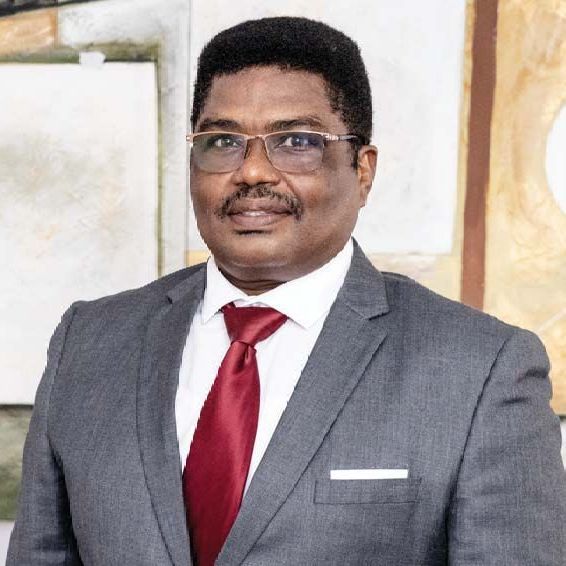Cape Verde’s Sovereign Fund: Driving Economic Diversification and Investment Opportunities

João Fidalgo, Chairman, Sovereign Private Investment Guarantee Fund
With the increasing focus on economic diversification, how is the Sovereign Private Investment Guar-antee Fund (FSGIP) channelling in-vestments to support emerging sectors, and what opportunities ex-ist for investors looking to participate in this diversification strategy?
I see the Sovereign Fund as a complementary mechanism to support the financing of the Cape Verdean economy, particularly by strengthening the private sector. Our focus is on empowering large-scale companies that have a significant impact on economic, social, and environmental sustainability.
Cape Verde faces important development goals for 2030, especially around sustainable development. The fund is fully aligned with the national objective of economic diversification. One of the most promising areas for this is the blue economy. As an island nation, Cape Verde is nearly 99% surrounded by the sea, which presents immense potential namely in fishing.
While artisanal and semi-industrial fishing currently dominate, we are exploring support for the development of industrial fishing, with better capacity for catch rates and conservation. Although the sector contributes modestly to GDP, it is a strong job creator. We are also working through regional partnerships, such as those with Senegal, to enable large-scale vessels that can take the industry to the next level.
Beyond fishing, maritime connectivity is crucial. We are looking at vessels that can enhance domestic economic activity through improved cargo and passenger transport, as well as more effective marketing channels. Several projects in this area are currently in the financing stage, with support from international partners.
The Sovereign Fund will play a key role in turning these initiatives into reality.
Connectivity challenges extend to air transport as well. National entrepreneurs are developing small-scale air mobility projects, and we are encouraged by their potential.
Operators from the diaspora are also returning –not just with equipment, but with valuable knowledge and management expertise.
In the renewable energy field, Cape Verde is rich in wind and solar re-sources. One of the most pressing concerns is the high cost of energy, which is largely due to fossil fuel imports. The government has committed to increasing the use of electric vehicles and renewable sources by 2040–50. For example, we already have a renewable energy project underway on the island of Sal, and a similar initiative is being considered for Santiago.
Lastly, we are also advancing the circular economy, especially in waste management and plastic reduction.
We have already seen sovereign funds helping in the growth of the economy in other African countries such as Nigeria, Botswana, and Zambia, mainly because they bring the private and public sectors to-gether. How confident should in-vestors be in the potential of the FGSIP, given that it is relatively young?
We need to start with communica-tion–both dissemination in key forums and engagement at the national level. It is vital that we understand the role of the Sovereign Fund in boosting and energising the private sector. Cape Verde faces significant chal-lenges, particularly around achieving inclusive economic growth.
We need to reduce poverty, lower unemploy-ment, and, ideally, double our GDP in the near future. Growing at 5% is positive, but it is not enough to lift us out of our current economic status. We need more substantial, sustained growth.
At the end of the day, it is businesses that drive the economy.
Our private sector is made up of around 90% micro and small-to-medium enterprises. While these are essential, we also need to develop a stronger base of large-scale companies. There is room for growth across sectors – tourism, banking, transport, and renewable energy, especially in areas where we can reduce costs and promote sustainability, for instance, better water treatment and the use of green energy in agriculture hold enormous potential.
In tourism alone, while Sal and Boa Vista currently receive the lion’s share of visitors, we see real opportunity to develop other islands. This would not only diversify our offer but also create space for national companies to thrive in this area.
Why should investors consider Af-rica, and Cape Verde specifically?
Cape Verde is a country that respects property rights and upholds the democratic rule of law.
Our legal system operates with transparency, and we have functioning courts. We are also known for our peace and stability.
We already enjoy a high level of education, and a significant portion of our population is under 30. This youthful demographic presents great potential for employment and innovation.
Geographically, Cape Verde is strategically located less than four hours from Europe and just two hours from Senegal and the rest of West Africa.
With regards to transport, there are clear opportunities. Take maritime transport, for example–we have traders who need access to their own vessels to move goods between islands and beyond. A well-integrated transport system for both cargo and passengers would make a huge dif-ference. Many in the diaspora are eager to invest and contribute back home.
There are also strong prospects in tourism, hospitality, and agriculture. Certain areas are already showing good development and moving to-wards industrialisation. Cape Verde is set to significantly expand its productive capacity–not just for domestic use, but also for export.
